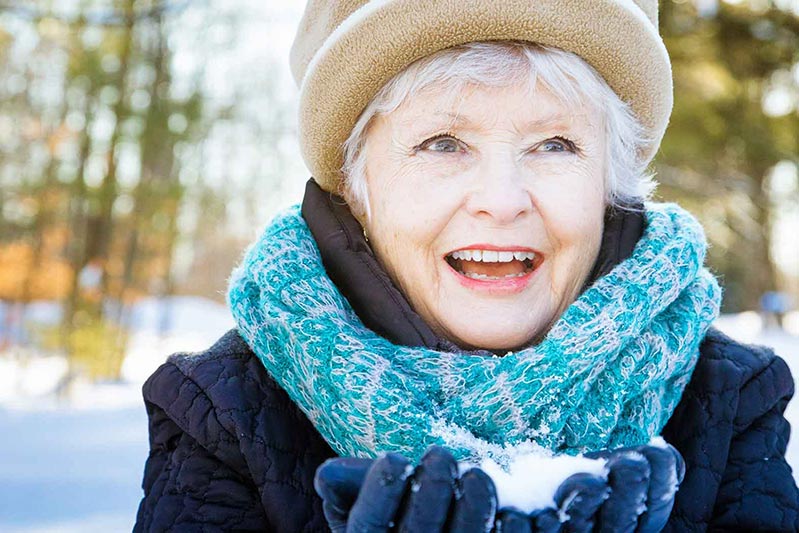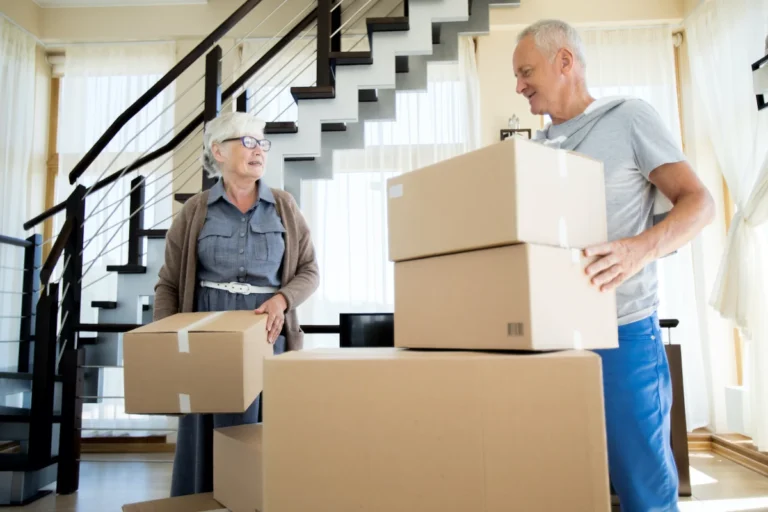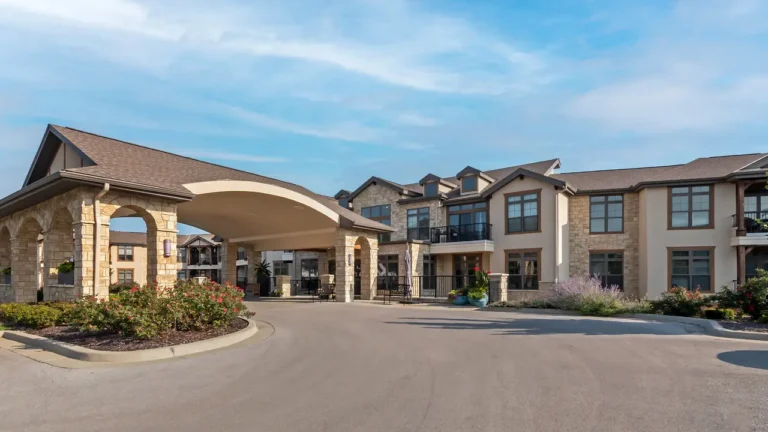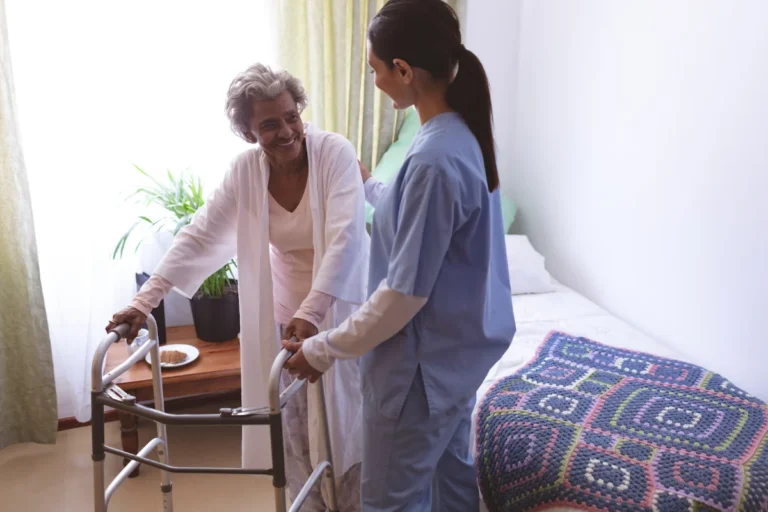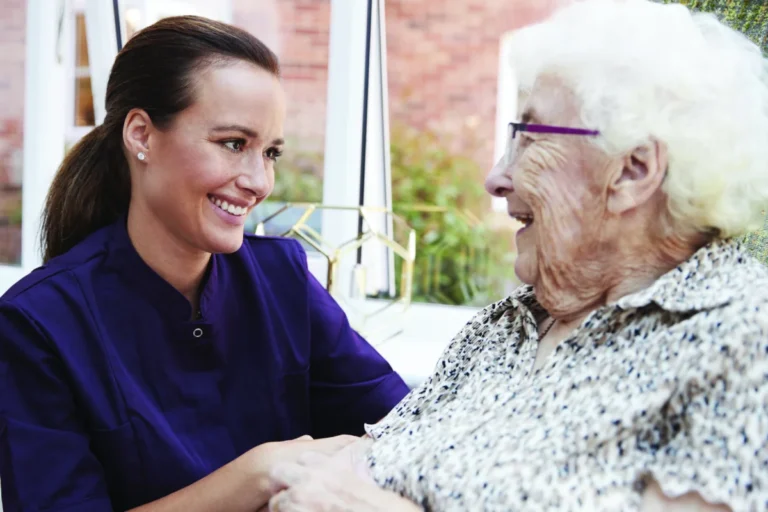The winter months can present a variety of challenges for senior citizens, from winter weather to cold, dark nights making way for self-isolation and depression in seniors. In general, homeowners spend an average of $6,000 on home maintenance every year, and that is barring any extreme weather or other home disasters. For seniors, this may not be financially attainable, leaving homes in disrepair in upcoming winter months.
Preparing Seniors for Winter Weather
Navigating the winter months poses one of the most serious challenges for seniors living independently. During the winter, the impact of inclement weather becomes a primary concern. Preparing for the onset of winter involves a comprehensive approach, where homeowners must winterize their homes and cars.
Some companies provide home maintenance services for seniors if family and friends cannot assist. This includes securing windows for insulation and ensuring that vehicles are in optimal condition to withstand the challenges posed by winter weather.
For seniors who still drive, the accessibility of their vehicles and the safety of road conditions become paramount. A well-maintained car is not only crucial for personal mobility but also for ensuring that winter journeys are navigable and secure.
Snowfall can render driveways and garages impassable, necessitating external assistance to liberate the vehicle from its frozen confines. Even after overcoming this hurdle, there’s the task of scraping ice and snow from the car, adding an extra layer of challenge to the winter driving experience.
Beyond vehicle concerns, seniors deal with the hazardous conditions the winter season imposes on their surroundings. Slippery and icy steps, walkways and sidewalks can transform the journey from home into a treacherous undertaking.
Unfortunately, many seniors find themselves unable to do outdoor winter maintenance to salt these surfaces for safety. This restriction not only limits their mobility but also raises concerns about the potential for accidents and injuries.
Addressing the unique needs of seniors during the winter maintenance months requires a collective effort to create environments that prioritize safety, accessibility and the overall well-being of those navigating the chilly and often unforgiving winter terrain.
Exterior Winter Maintenance for Seniors
On the home front, winter weather and freezing temperatures can result in frozen pipes, depriving seniors of water access or, more critically, causing pipes to rupture, leading to the heightened risk of home flooding. Additionally, in the event of snowfall, senior homeowners typically bear the responsibility of clearing sidewalks and removing fallen limbs from their property. However, these tasks may also be the result of power outages, adding another layer of concern during winter months.
Within the household, routine upkeep, such as replacing light bulbs, smoke detector batteries and furnace filters, is an aspect of winter maintenance. Securing windows and doors and preparing gutters and downspouts are also home maintenance tasks that need to be attended to. Regardless of the season, the condition of major appliances, including the need for repairs or replacement parts, can significantly influence a senior’s overall quality of life at home.
Health Concerns for Seniors During the Winter Months
There are many additional health concerns for seniors during the winter. During an emergency, adverse winter weather conditions may impede friends and family from reaching their loved ones, and seniors could find themselves isolated, potentially leading to feelings of depression.
In the case of power outages or a home being inaccessible and unreachable, seniors may be spending time in the dark and/or cold within their homes. The average home will stay warm for about 8-12 hours after losing power, getting colder by the hour. If friends and family cannot reach a senior during this time, there is a chance of seniors experiencing hypothermia, which can be deadly.
According to the National Institute on Aging, hypothermia happens when the body temperature drops to a critical level. Body temperatures of 95°F or below can lead to health complications for seniors, such as heart attacks, liver damage or kidney problems.
The American Heart Association notes that seniors with cardiovascular conditions may experience heightened adverse effects in cold weather due to lower temperatures and increased winds. These weather-related factors contribute to a reduction in body heat, prompting blood vessels to constrict and necessitating more oxygen to reach the entire body.
Hypothermia kills about 600 Americans every year, half of whom are 65 or older, according to the Centers for Disease Control and Prevention. Make sure your friends and family are aware of the warning signs of hypothermia because it can occur at any age. Here are some early clues:
- Exceptionally cold hands and feet
- Pale skin
- Acting sleepy
- Shivering
- Puffy or swollen face
- Being confused
- Slurred words
Hypothermia can be life-threatening, and that is why it is extremely important to put safeguards in place for the winter. One way to do this is by packing emergency kits, including gloves, hats, hand warmers, battery-operated heaters and warm blankets, to keep in the home in case of a weather-related emergency.
Senior Living Communities in the Winter
While it’s true that seniors living independently presents challenges, there are other options for your loved ones when it comes to homes in the winter months (and all year round!). Moving into a senior living community can decrease the challenges that come with seniors living independently during the winter months, allowing peace of mind for the resident, their friends and their family.
When considering retirement, the desire for a secure future is top of mind. The last thing you want is to be vulnerable to risks such as hypothermia, slipping on ice or navigating through sleet. This is where the beauty of maintenance-free living truly shines – not worrying about weather-related concerns. Our commitment extends beyond the exterior, as we are equally equipped to cater to your indoor maintenance needs.
Whether it’s repairing your stove, changing a light bulb, unclogging a drain or ensuring your furnace is in top condition, our dedicated team is at your service. Transitioning to a senior living community allows you to leave behind the hassles associated with these concerns.
Our comprehensive, residential, maintenance-free package bestows upon you the gift of more time. Residents in our communities enjoy the freedom of peace of mind. This means you can unwind in the comfort of a warm, spacious apartment or partake in a variety of amenities and programs we offer, all without ever stepping outside the building.
Move to a Tutera Community This Winter
With the winter season upon us, there’s never been a better time to consider a move to a senior living community. Tutera communities offer a comprehensive range of services, including gourmet dining, activities, amenities and on-site maintenance teams, making living in the community completely carefree.
With caregiving, nursing, dining and low-maintenance living, the team at Tutera makes sure that every resident’s needs are met, they are warm and comfortable, and they can enjoy watching the snowfall from inside their homes or common areas.
Tutera communities are in 10 states and are accepting new residents now. Interested in finding a community near you? Check us out online here: https://tutera.com/find-a-community/

